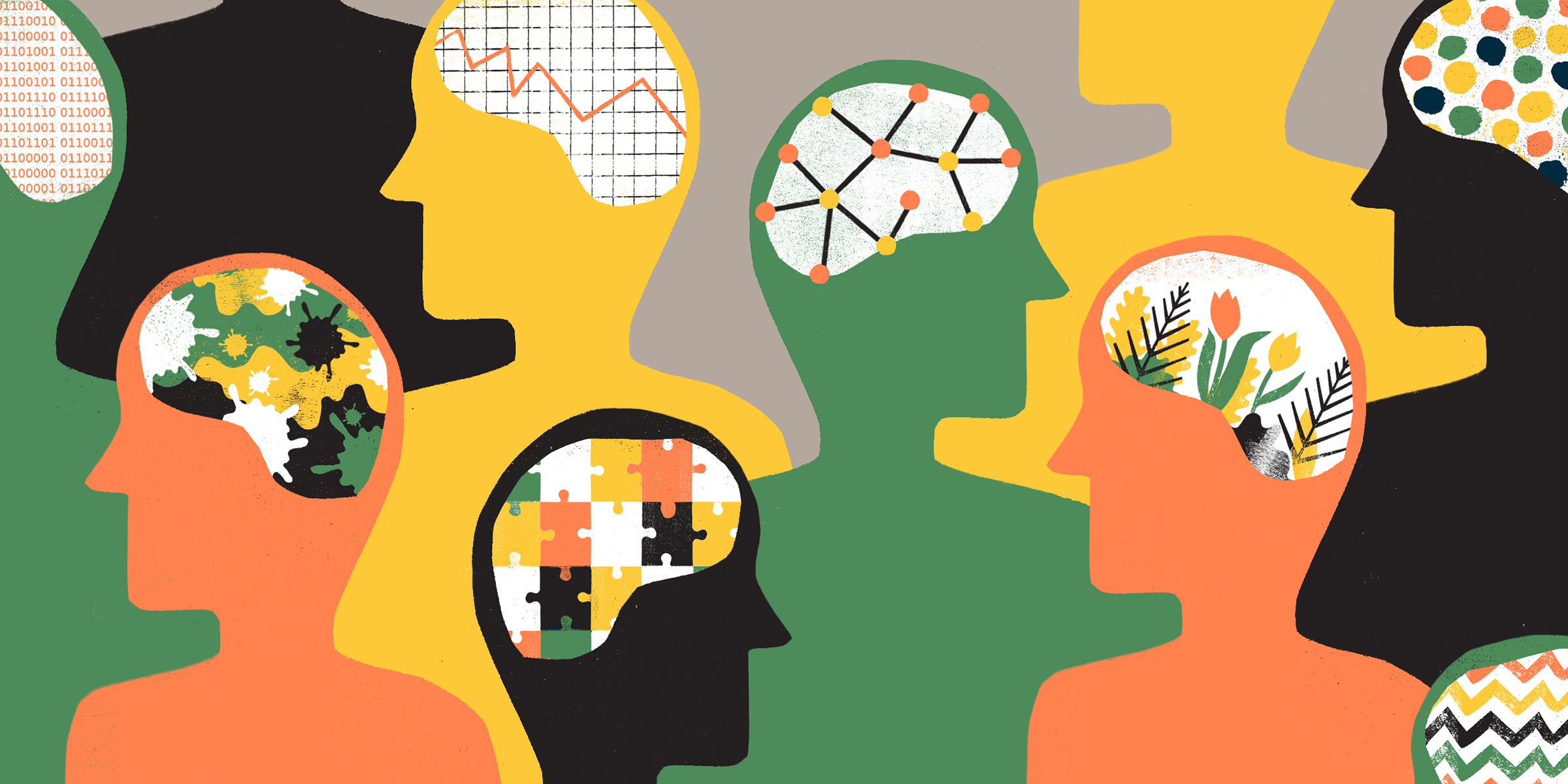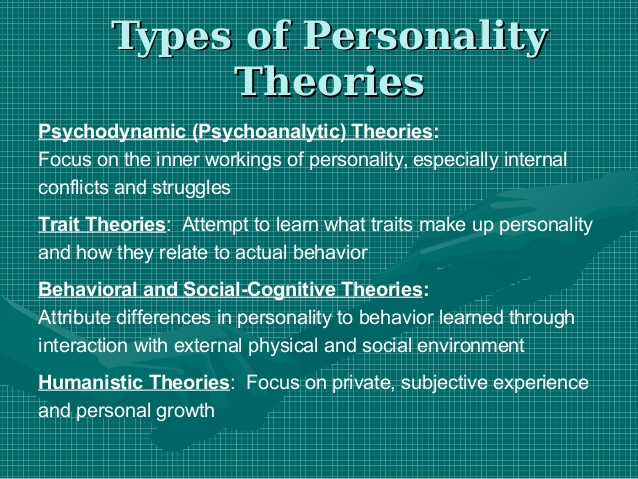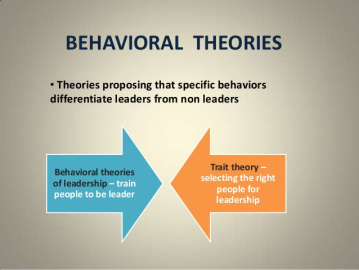Erik Erikson, Sigmund Freud, and a few other brilliant minds are responsible for creating the psychology theories of personality. There is a very broad and varied history behind the study of personality, which includes a substantial number of theoretical traditions. Most psychologists and researchers take an eclectic approach rather than associating themselves with a specific perspective, while others focus on psychodynamics and other theory development research. This study also applies emphasis on personality testing.
How Are Personality Types Different Than Personality Traits?
Personality type refers to the classification used to identify different types of people. Personality traits are defined as habitual patterns of emotion, behavior, and thought. Although they differ from one person to the next, they are relatively stable. According to psychology theories of personality, people can be placed into introvert and extrovert groups. Types are often said to include qualitative differences, while traits are construed as quantitative.

What Three Components Did Freud Use in Explaining Psychoanalytic Theories?
Most know that Sigmund Freud was the mastermind behind psychoanalytical theories, which explore the behavior of humans on a very intricate level. The id, ego, and superego are the three components he used to divide the human personality. The id demands immediate gratification regardless of the external environment. Then, in order for the wishes of the id to be met, the ego must emerge to adhere to reality principles of the outside world. Last, the superego inculcates societal rules and moral judgments on the ego, so the id demands can be met in a moral and realistic way.
What Are the Primary Areas of Focus when Exploring Theories of Personality?
Personality psychology studies the differences between every individual by focusing on three components.
These include:
- Investigating human nature and determining how individuals are alike.
- Exploring individual differences to determine what makes people unique.
- Creating a coherent picture of the studied individual.

What Are the Fundamental Psychological Assumptions That Most Theorists Tend to Disagree and Debate?
There are strong minds behind the many theories of psychology. Although there are times when theorists do agree, there are also a few assumptions that they tend to have strong opposing opinions.
A few areas of debate include:
- Action versus Reaction: Some behavioral theorists believe that the environment shapes humans, but cognitive theorists say that humans act through their own initiative.
- Freedom versus Determinism: This debates whether forces beyond your control dictate behavior or if it is motivated by biological, environmental, and unconscious theory.
- Heredity versus Environment: Some researchers suggest that the environment in which a person lives molds their personality traits. Others believe that biology and genetics are responsible.
- Person versus Situation: Social psychologists suggest that situations contribute to behavior while personality researchers argue that personality traits or internal dispositions are used.
- Uniqueness versus Universality: This is an argument whether humans are all unique or similar in nature.

What Are the Major Psychology Theories of Personality?
One of the reasons why the branch of personality theory is interesting to many people is because there are such diverse theories. Some believe that only one theory is purely responsible for molding personality, while others suggest that two or more theories work together.
Below are several prominent theories:
- Biological Theories: These suggest that genetics are primarily responsible for personality.
- Behavioral Theories: In this thinking, it is believed that the environment plays a role in personality development.
- Humanist Theories: The importance of free will is emphasized in these theories.
- Psychodynamic Theories: Sigmund Freud is known as the founder of psychodynamic theories. He suggested that the unconscious mind is responsible for an individual’s personality. He also believed that personality was created by the time a child turned 5 years old.
- Trait Theories: According to this theory, a significant number of broad traits work together to create personality.
The study of personality is fascinating because it is a branch of psychology where there are a significant number of theories to consider. Many ideas have been developed by combining assumptions from both historical and modern theories. Psychology theories have been created through numerous conclusions by many brilliant minds; many of which have considered art, philosophy, and science in their findings. Just as there are many theories, there is also an array of methods used to measure the inner experience.
What’s Your Type: Theories of Personality
What makes you tick? The answer is simple, but understanding it is quite complex. Your personality dictates what you do and how you handle things. You surely know people who are incredibly ambitious and then others who just sort of float through life. This is because of their differing personalities. There are hundreds of theories of personality, but the main categories have remained the same for quite some time. If you can understand the basics of the category you fall into you will be able to start taking control of who you are.

What are Biological Theories?
The biological theories look at genetics and its role in terms of personality. For example, if your parents are shy, you will be too. Or, if your parents have always been hard workers, you will be a hard worker too. Studies that have researched these theories do state that they have merit and that you are truly a product of your environment in terms of personality. When Hans Eysenck write expository essay at these theories he did find that introverts do avoid stimulation via high cortical arousal and extroverts sought out stimulating experiencing via low cortical arousal.
What are Behavioral Theories?
The behavioral theories look at how your personality is influenced by how you interact with the environment. Measurable and observable behaviors are looked at. Theories that state that your internal feelings and thoughts play a role are rejected. This one basically states that what people can actually see and analyze are what affects your personality and nothing else.

What are Psychodynamic Theories?
The psychodynamic theories are highly influenced by Sigmund Freud and look at how your childhood experiences and unconscious mind influence your personality. Freud believed that these two factors had a major influence on your personality. Erik Erikson also looked at these theories in developing his stages of psychosocial development. He laid out stages and said that we must successfully complete one in order to be able to be successful in the stage after it.
What are the Humanist Theories?
The humanist theories look at how individual experiences and free will influence a person’s personality. These theories are often looked at when a person is making bad choices such as committing crimes or is unable to maintain a fulfilling intimate relationship. Self-actualization is highly emphasized by humanist theorists. This means that your behavior is influenced by an innate need to grow personally.
What are the Trait Theories?
This is a much more broad theory as it looks at how a variety of traits make up one’s personality. A trait is a single characteristic that influences behavior. You, as an individual, have dozens of traits that create your own personality. Since traits are stable, your personality will stay the same throughout your life.

Why are Personality Theories Important?
Your personality affects every part of your life. Theories have been proposed for centuries that work to help you understand your personality better. When you can understand how you tick, you can better control the negative things about your personality. This can help in everything from intimate relationships to your career.
Personality theories have been around for centuries and as the years pass, they have been added to. Some have even been disputed, but are still thought to be worth knowing. Being able to understand your personality can help you work on the less positive parts of your personality. In a nutshell, knowing your personality type gives you control over it.

